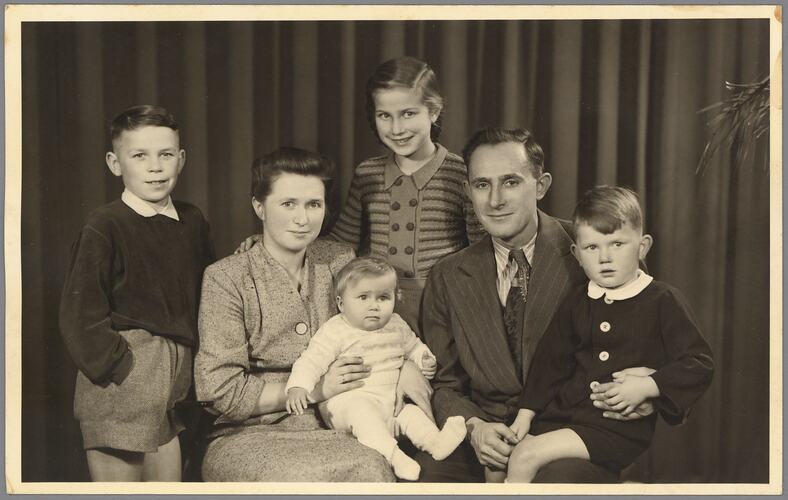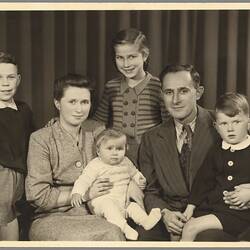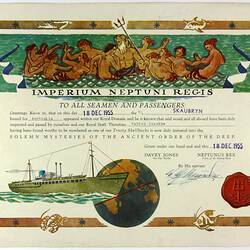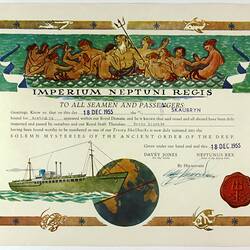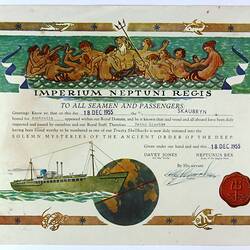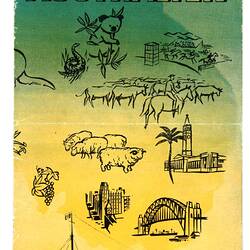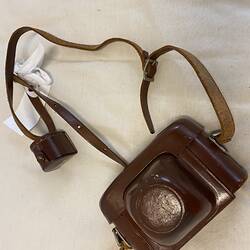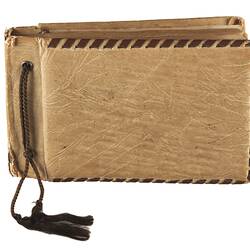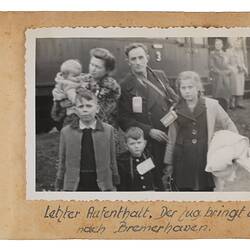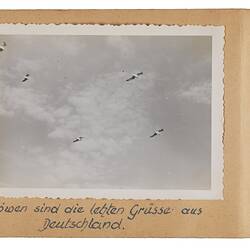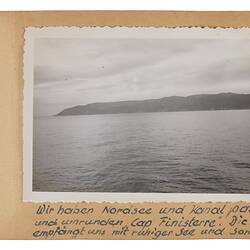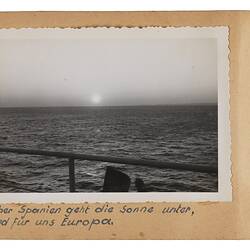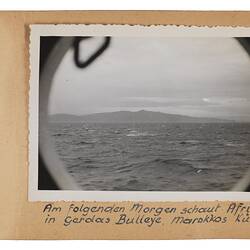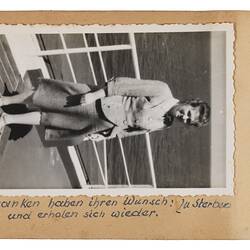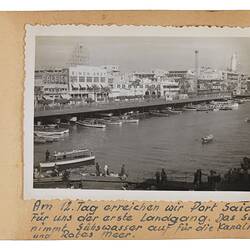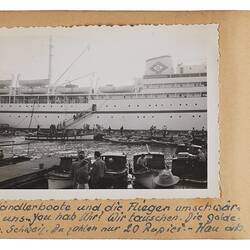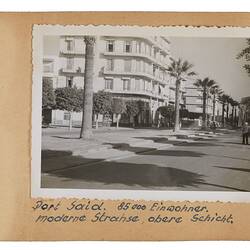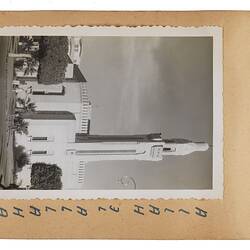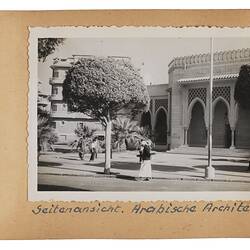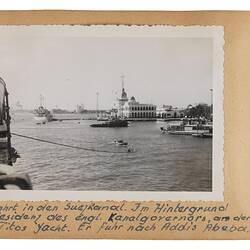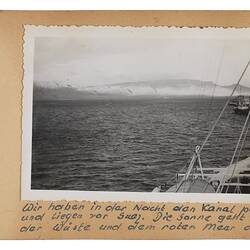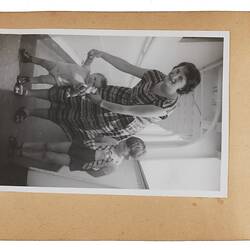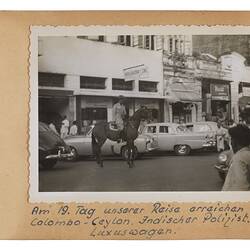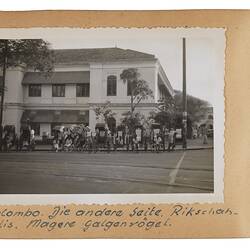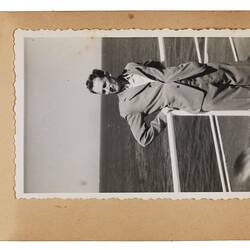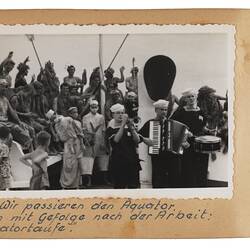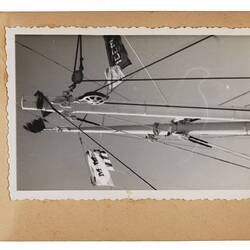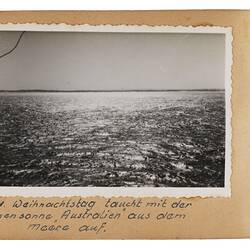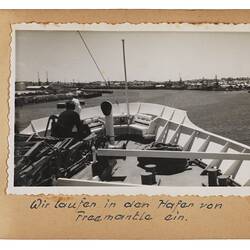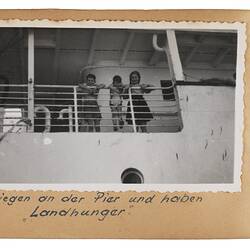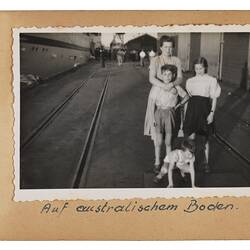Summary
Walter and Gerda Lischke and their four children migrated to Australia from Germany in 1955.
Early Years:
Walter and Gerda Lischke and their four children migrated to Australia from Germany on the MS Skaubryn in November 1955. Walter was born in Danzig (now Gdansk, Poland) in 1913 and Gerda in Magdeburg in 1923. Walter was a 'drogist' (a type of chemist) and undertook his training from April 1930 to March 1933 in poisonous chemicals composition and preparation, completing his professional qualification (Giftprüfung) in 1933. Walter and Gerda married in May 1944 in Magdeburg and then lived in Wittstock. Walter worked as either a teacher or trainer for the paratroopers, Wittstock having a military airfield.
War Years:
Finding employment difficult, he joined the German cavalry in April 1934 and served until October 1937, when he was conscripted into the Reichsarbeitsdienst (Reich Labour Service). He served in Gau VIII (District 8 - Ostmark) in eastern Germany. In June 1940, he was granted leave from the Labour Service to join the Wehrmacht and served as a paratrooper for the duration of the war, undergoing operations for war-related hip and wrist injuries in 1941 and suffering from diphtheria in 1944. He was captured and imprisoned by Allied forces in May 1945, spending three months in an American-English prisoner-of-war camp before his release in August 1945.
After the War:
Walter and Gerda's first child, Jutta, was born in March 1945 in Wittstock (Dosse), a town in eastern Germany occupied by Soviet forces in May 1945. Gerda has related to her children that when she was 21 years old she escaped Wittstock with three-week old Jutta in a convoy of ten trucks. The trucks were bombed and only three survived. Gerda made it to Wismar, where she met her mother and other relatives who lived there.
The circumstances in which the family reunited in western Germany at the end of 1945 are unclear, but they somehow all arrived in Meppen (Ems), a small town in West Germany close to the Dutch border where one of Walter's uncle's lived. They lived in a nearby village where Werner was born in 1946, and later all moved into Meppen.
After Walter's release from the POW camp, he took up a job as a labourer at an ironworks, where he worked until March 1947. He later worked as a labourer at an oil drilling works and as a truck driver for an English-run transport company until he founded his own company in 1949, specialising in pest control, wood treatment and crop protection. The couple had two more children in Meppen - Peter (Wanze - 'little bug') in 1951 and Sybille in 1954.
Migrating to Australia:
After the war the couple felt marginalised as Lutherans, living in a predominantly Catholic area (located in the Polish occupation zone, with Meppen having at the time a particularly strong Catholic community). Moreover, a takeover of Walter's agricultural business was imminent which he didn't want but competition from large companies was becoming too strong.
These factors influenced Walter's desire to migrate, but possibly the most significant factor for he and Gerda was their fear of another war. Both had lost siblings and other family members and Walter, who'd had traumatic experiences as a result of both world wars, wanted a new and safe start for his children. He was the adventurous one and Gerda most reluctantly agreed to his decision, having to leave behind her elderly mother (Walter leaving behind four siblings). The family's application for migration was approved largely on the basis of Walter's professional skills, with the interviewing officer noting: 'Subject impresses as an intelligent and responsible type. [.] Recommended as chemical worker'.
Jutta the oldest child recalls: 'In October 1955 we, my brother and I, were told, that we are going to have a long journey by boat to a country, where they speak English, where it is quite warm and hot and strange birds and animals live there. My brother, who is a good year younger than me, and myself, we were very excited, it meant adventure. Then I asked, if grandmother is coming along too? The answer - "No" - made me unhappy.' (Jutta Iwatschenko nee Lischke written recollections, 21.01.2017)
During the voyage Werner (nine) and Walter slept in a men's cabin while Gerda and Jutta (ten), Peter (four) and Sybille (one) shared a cabin with another woman. Jutta recalls: 'I was once in bed for three days being seasick myself, it was terrible. We went through the Suez Canal. That was very exciting. You saw the big boat within a spur of water and right, left of it was desert, and you saw a few camels. We just could not believe it, were amazed and jumped from one side to the other.' (Jutta Iwatschenko nee Lischke written recollections, 21.01.2017)
Migrant Hostels and Life in Australia:
The family arrived in Melbourne on 30 December 1955. Jutta recalls: 'In the morning, big cranes heaved all the boxes of the immigrants off the boat. While they heaved them up, broken crockery just dribbled out of those most wooden boxes, it was just like fairy gold. I thought. The grown-ups were gasping, their hands in front of their mouth and everyone was hoping, that it was not their box. However, some people could recognize their box and were full of tears. All their belongings and hopes in bits and pieces.' (Jutta Iwatschenko nee Lischke written recollections, 21.01.2017)
Upon arrival on a cold day, Walter, Gerda and the children travelled by train with other new arrivals to Bonegilla Migrant Reception Centre, where they lived in a split accommondation Nissen hut (two rooms). A letter from Walter to his uncle Max (dated 9/2/1956) states that he had been in Sydney for six days looking for a job; that he was going to Mildura the next day to pick grapes; that the average wage is 20-30 pounds a week and accommodation three pounds a week. He explains that Gerda will stay with the children at Bonegilla.
It was not a happy time for Gerda, but Jutta remembers it quite fondly (Jutta would return to Germany for a working holiday in 1968, where she met her husband and stayed). Jutta recalls: 'I remember my brother Werner and me exploring the surroundings. It was dry and warm; there were creeks, which were dry but we still jumped over them, at the same time something screamed. After the first shock, we had to laugh. It was a cockatoo with its yellow comb. We knew those birds only from books. Later on, we saw other colorful birds and strange animals like kangaroos. It was a very interesting and adventurous world for us.' (Jutta Iwatschenko nee Lischke written recollections, 21.01.2017)
The family subsequently stayed at Somers and Maribyrnong hostels before moving to a share house in Richmond. Walter worked for Adams Pest Control, and Gerda at the Rosella factory. Jutta recalls: '...my mother worked very hard at Rosellas, a fruit company. Unfortunately, she did not have nice colleagues. They did not encourage her to speak English. Nevertheless, my mother managed, seeing she had learnt English at school in Germany. While living in Richmond, Mum also attended classes to improve her English.' (Jutta Iwatschenko nee Lischke written recollections, 21.01.2017).
They then moved to Warrandyte where they built their own home and Walter started a gardening business. Gerda returned to Germany for the first time in 1974, Gerda and Walter in 1980, where Walter died and Gerda returned to Australia alone. Walter is buried in Germany where Jutta now lives. Of the children, Werner had no interest in returning to Germany describing himself as 'a fair dinkum Aussie.' Sybille has frequently visited her sister Jutta in Germany as well as her husband's family in England. Peter visited in 1974 for Christmas, stayed a few weeks and then worked in England for a few months before returning to Australia. Sadly, he died unexpectedly in 1994. Jutta visited her family in Australia many times so the relationship between Australia and Germany through these family members in different hemispheres continues.
Walter's Photo Album:
Walter took many photographs, including those taken during the ship voyage, which he put together in an album, entitled 'Our journey to Australia. 26.11 - 31.12.1955. To our dear grandmother!', and sent back to Gerda's mother. After she died three years later (which caused Gerda terrible grief), the album came back to the family in Australia.
Jutta, the Lischke's eldest child, recalls that after her grandmother died: 'My grandmother's few belongings were sent to us, including the piano, letters, a few other minor items and the photo album, which my father made for our grandmother.' (Jutta Iwatschenko nee Lischke written recollections, 21.01.2017)
The album, each photograph annotated in German, commences in Bremerhaven, from where the family departed Germany, and traces their journey to Australia.
More Information
-
Keywords
-
Authors
-
Contributors
-
Article types
